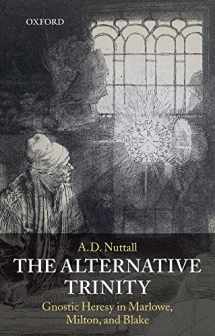
The Alternative Trinity: Gnostic Heresy in Marlowe, Milton, and Blake
Book details
Summary
Description
The Trinity of orthodox Christianity is harmonious. The Trinity for Blake is, conspicuously, not a happy family: the Father and the Son do not get on. It might be thought that so cumbersome a notion is inconceivable before the rise of Romanticism but the Ophite Gnostics of the second century AD appear to have thought that God the Father was a jealous tyrant because he forbade Adam and Eve to eat from the Tree of Knowledge and that the serpent, who led the way to the Tree of Knowledge, was really Christ. This book explores the possibility of an underground "perennial heresy," linking the Ophites to Blake. The "alternative Trinity" is intermittently visible in Marlowe's Doctor Faustus and even in Milton's Paradise Lost. Blake's notorious detection of a pro-Satan anti-poem, latent in this "theologically patriarchal" epic is less capricious, better grounded historically and philosophically, than is commonly realized.


We would LOVE it if you could help us and other readers by reviewing the book
Book review



